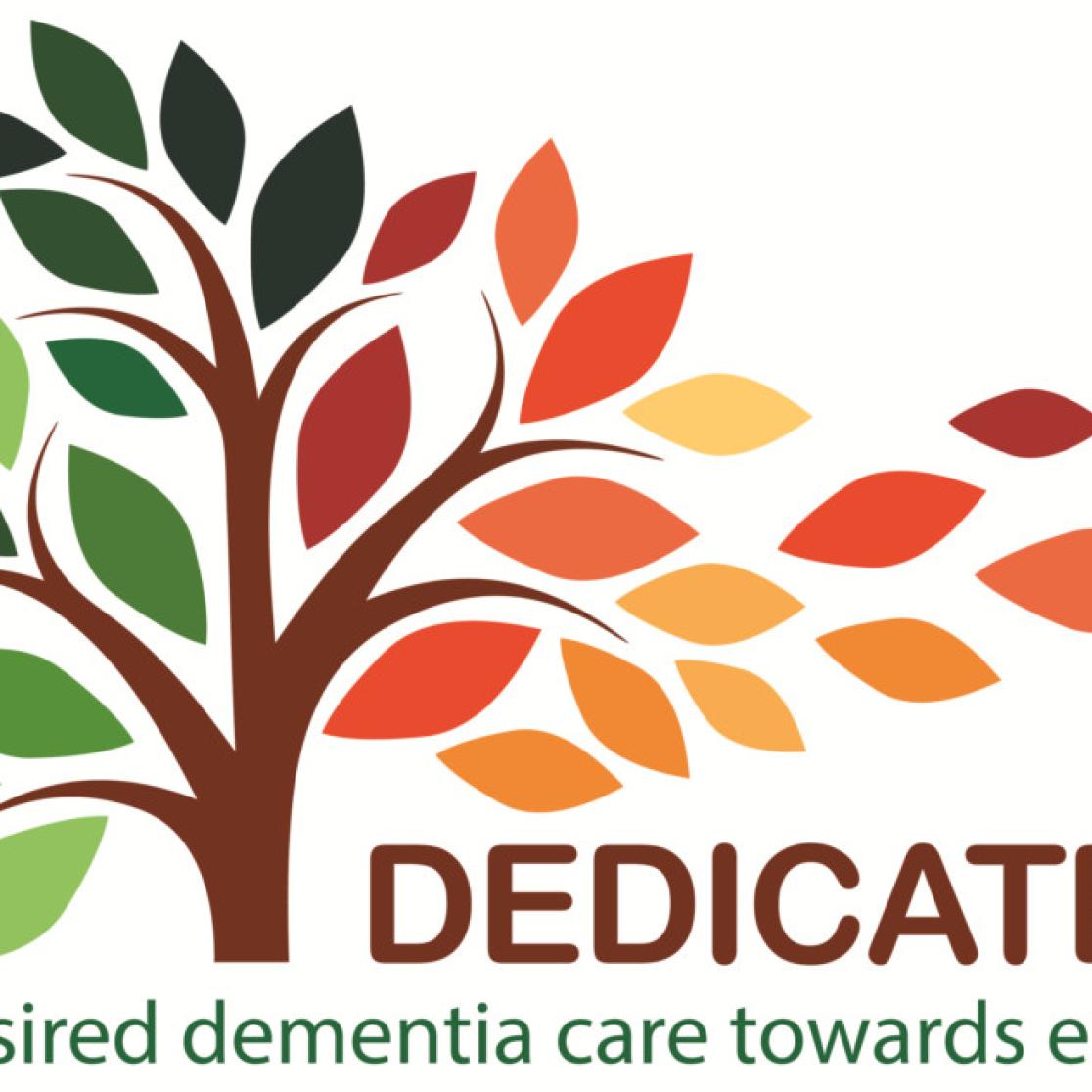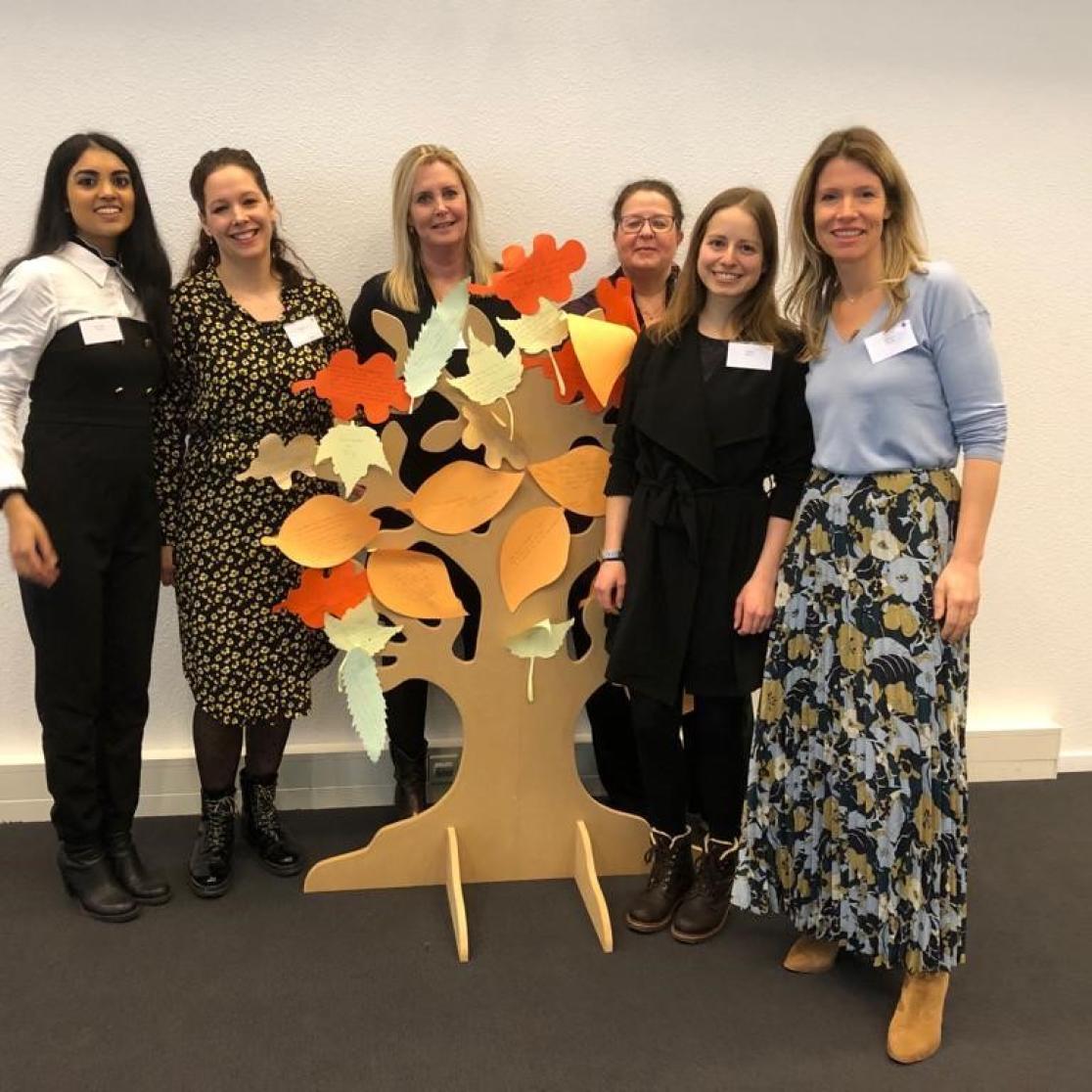Talking about death and dying

Palliative care is an essential part of the care and treatment process for people with life-threatening or chronic illnesses – or at least it should be. But it can be difficult to tailor end-of-life care to patients’ needs and preferences, facilitate shared decision making and maintain clear communication. The DEDICATED project aims to change this for people with dementia, while I-HARP focuses on palliative care needs of patients with chronic heart failure.
Involved research line
- Ageing and Long-Term Care
Involved Living Lab
Judith Meijers, project leader of DEDICATED (Desired Dementia Care Towards End of Life), explains, “DEDICATED focuses on improving the quality of care for people with dementia and their loved ones, at home and in nursing homes.” In this project, healthcare organisations (Zuyderland Zorgcentra, Envida, Vivantes, Hulp bij dementie), researchers (Living Lab in Ageing and Long-Term Care South Limburg) and vocational and professional training institutions (Zuyd University of Applied Sciences, Gilde Opleidingen) are working together with local and national organisations (including Dutch health insurance provider CZ, the Centre of Expertise for Long-term Care in the Netherlands Vilans, the Netherlands Comprehensive Cancer Organisation IKNL, Dutch Alzheimer’s foundation Alzheimer Nederland, the Dutch Nurses’ Association V&VN, and palliative care networks).
Less uncertainty, more peace of mind
“Palliative care for people with dementia is complex”, explains Judith. “It’s difficult to talk about death with someone who is nearing the end of their life. The conversation often doesn’t take place or takes place too late. On top of that, people with dementia can no longer make their needs and preferences known in time because of their cognitive decline. Nurses and caregivers don’t always feel competent enough to have these kinds of conversations or to provide good palliative care. Moreover, this type of care tends to be fragmented; many health professionals are involved, but no one really takes charge and there’s no big-picture perspective. It’s a pity, because coordinating these kinds of things timely and properly will give everyone involved more peace of mind. It allows the patient to die with dignity.”
Developing competences
DEDICATED consists of two closely related subprojects, says Judith. “Part 1 focuses on increasing basic knowledge about palliative care for people with dementia and improving end-of-life communication. To this end, the project team is developing a competence toolkit for nurses and caregivers in particular.” To determine what needed be included in the toolkit, conversations were held with people with dementia, their loved ones and health professionals. “The conversations provided interesting insights”, says Judith. “We identified four common themes: awareness of palliative care, getting to know the person behind the patient, improving end-of-life communication, and dealing with pain and misunderstood behaviour in people with dementia.”

Involved partners
DEDICATED project
- Living Lab Ageing and Long-Term Care
- Burgerkracht Limburg
- Consortium palliatieve zorg Limburg en Zuidoost Brabant
- Consortium palliatieve zorg Propallia
- CZ
- Envida
- Expertise Centre Palliative Care MUMC+
- Hulp bij dementie
- IKNL
- Leiden University Medical Center
- Netwerk Palliatieve Zorg
- Vilans
- Vivantes
- Zuyderland
- Zuyd University of Applied Sciences
Something useful
The toolkit is being put together theme by theme through an iterative process, together with nurses from the participating healthcare organisations, case managers, patient representatives and staff members of vocational and professional training institutions. “We’re looking very carefully at what is needed as well as what fits the approach taken by healthcare institutions and home care organisations. We want to produce something useful that creates awareness among health professionals and helps them provide palliative care. At the same time, we’re looking into how to incorporate this into healthcare training.” The theme Awareness of Palliative Care is already taking shape. “Among other things, we’ve developed guidelines for discussing cases and a jar with reflective questions about palliative care for nurses and caregivers. For the theme Getting to Know the Person Behind the Patient, we do life story work, for example.”
Improving collaboration
Part 2 of the DEDICATED project is about improving interdisciplinary collaboration in both home care and nursing home settings. Judith says, “Here, too, we’re identifying bottlenecks through questionnaires and conversations in small groups. We’re investigating which existing collaborative models and instruments can be used. This should lead to an effective collaborative strategy.”

The DEDICATED team: Chandni Khemai, Lara Dijkstra, Saskia Wolters, Els Knapen, Sascha Bolt, Judith Meijers.
Palliative care and chronic heart failure
Funded by the Netherlands Organisation for Health Research and Development, the I-HARP (Identifying Heart Failure Patients with Palliative Care Needs) project aims to improve palliative care for people with advanced chronic heart failure. “Chronic heart failure is a condition with an unpredictable illness trajectory”, says project leader Daisy Janssen. “Patients often have symptoms with a significant impact on their quality of life (fatigue, shortness of breath, poor appetite, depression, sleep problems and/or frequent urination) that can actually be effectively addressed through palliative care. As this is an unpredictable disease that may lead to sudden death, it’s especially important to have a timely conversation about palliative care needs with heart failure patients rather than wait until the last weeks of their lives.”
Practical instrument
I-HARP is an initiative of the Maastricht University Medical Centre+ (Expertise Centre of Palliative Care) in collaboration with the Radboud University Medical Centre and Maastricht University. The project has three objectives: developing a questionnaire to identify (and address) palliative care needs in a timely manner, developing a training course, and implementing the instrument. They’ve already made great strides, says Daisy. “The instrument has been developed based on interviews and focus groups with all parties involved in palliative care, including patients, relatives, relatives of deceased patients, nurses, general practice assistants, cardiologists, general practitioners, elderly care physicians, and palliative care specialists. We asked all of them what they need. In addition, a literature review revealed which instruments already existed and what we could learn from them. We’re particularly focused on the implementation: what do we need to do to arrive at a successful instrument that will actually be used in practice?”
The heart of the matter
“After identifying their needs and running co-creation sessions with participants from different backgrounds, we ended up with a questionnaire containing thirteen simple questions. The instrument begins with a few warm-up questions like, ‘What is on your mind right now?’ or ‘What do you enjoy?’ These are followed by screening questions about physical and psychological symptoms, what help they need, questions about heart failure or treatment, informal carers, their need to have a conversation about the great questions of life or about financial matters or concerns about the future. Each question comes with a number of suggestions for follow-up questions to deepen the conversation and really get to the heart of the matter. The instrument concludes with advice for health professionals on how to act on the results of the conversation, including documents and guidelines as well as references to other instruments and other health professionals.”

Involved partners
I-Harp project
Workshop and e-learning module
The project team is currently preparing a half-day workshop to be held in October 2020. “The workshop is aimed at nurses, nurse practitioners, general practice assistants and heart failure nurses. We’ll discuss the importance of palliative care for heart failure patients, explain how I-HARP works and practice using the instrument together. We’re also developing an e-learning module to provide an accessible way for people to learn more about palliative care.” Daisy concludes, “Essentially, I-HARP is about seeing the person behind the patient again. It’s about getting back to basics and providing person-centred care. At the same time, we realise that health professionals face heavy workloads. I-HARP attempts to meet everyone’s needs and preferences as much as possible with practical tips and advice. It could prevent a lot of distress, benefiting patients and their loved ones as well as health professionals.”
Text: Margo van Vlierden
Translation: Maud Bovelander
More information:
DEDICATED project
I-HARP project (you can download the I-HARP tool here)
Palliative care
Palliative care is a multidisciplinary approach focused on improving the quality of life for people with life-threatening or chronic illnesses. It does not focus exclusively on the last weeks or days of a patient’s life; palliative care needs may also arise early in the illness trajectory. The goal of palliative care is to relieve suffering by alleviating pain and other symptoms and/or providing social, psychological and spiritual support.
The DEDICATED team made a short movie about people with dementia and palliative care.